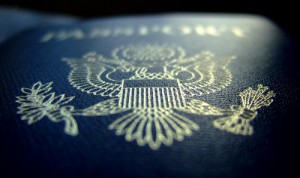
What Is the Affirmative Relief Announcement?
On June 18, 2024, President Biden announced a series of immigration actions using the authority granted to him by our existing immigration laws. These actions will help certain undocumented individuals in the United States, including:
Spouses and children of U.S. citizens who have been living in the United States for at least 10 years.
You may be eligible to apply for your green card without leaving the United States, if, as of June 17, 2024:
• You are in the United States after entering without permission;
• You have lived in the United States for at least 10 years and have never left;
• You are legally married to a U.S. citizen or have a qualifying stepchild relationship with a U.S. citizen; and
• You do not have certain criminal history or pose a threat to national security or public safety.
If you meet these criteria, the government MAY grant you parole-in-place.
• Parole would be granted for a one-time period of three years.
• You may also be eligible for employment authorization for up to three years.
• If you are granted parole, you may apply for your green card within three years of approval.
• Eligibility is determined on a case-by-case basis.
College-educated DACA recipients and Dreamers who are qualified for nonimmigrant status, such as an H-1B specialty occupation visa.
• You may be eligible to apply for a temporary visa more easily, if:
• You have a degree from an accredited U.S. institution of higher education; and
• You have an offer of employment from a U.S. employer in a field related to your degree.
Please note that these programs have NOT YET begun. Details on how to apply are expected to be released by the end of the summer through a Federal Register notice. This means:
• You CANNOT submit an application at this time.
• An early-filed application WILL BE REJECTED.
You SHOULD NOT pay anyone a fee associated with filing an application at this time.
BE PATIENT and take the time to find the right help. The wrong advice could harm your chances of staying in the United States, getting lawful status, or becoming a U.S. citizen.
DO NOT BE FOOLED by notarios and other consultants who promise immediate results or special solutions in order to steal your money. Many unscrupulous individuals will cost more than licensed attorneys! If you are unsure if someone is qualified to help, ask for proof of their credentials and retain a copy of that evidence.
This program could also be legally challenged, which could impact its implementation. This makes it even more important to have a qualified, knowledgeable attorney.


